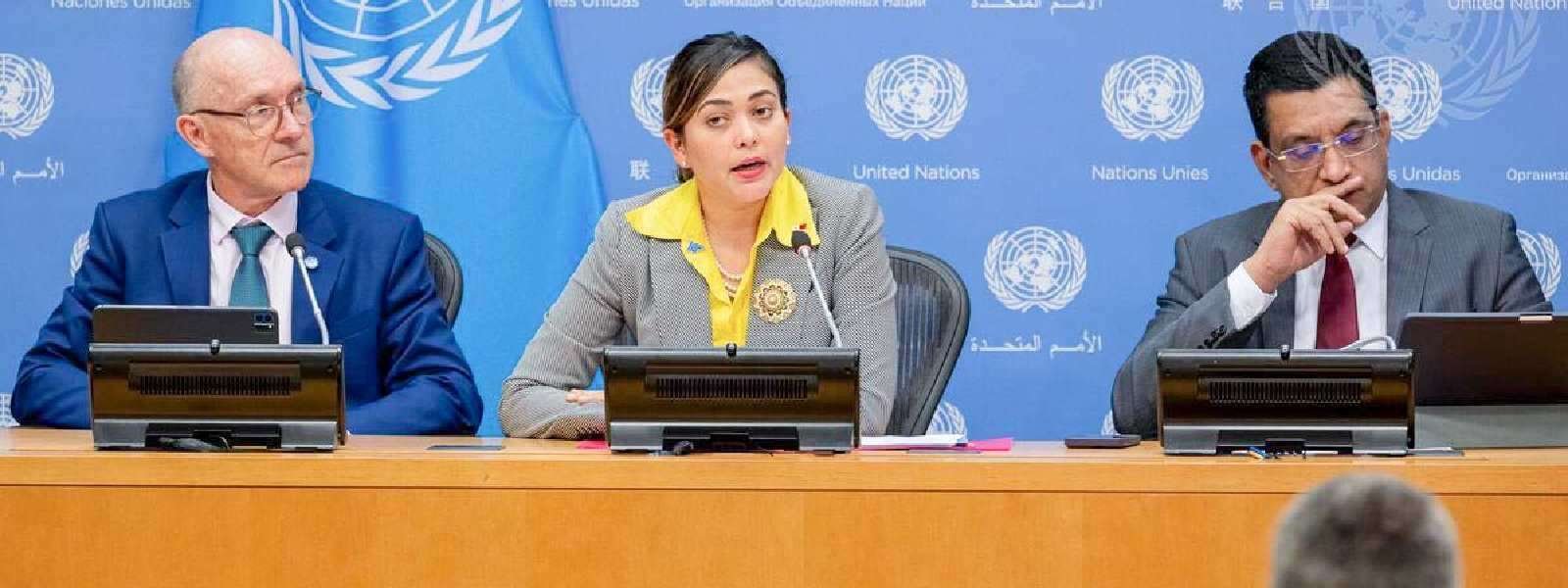
Sri Lanka's Commitment to Nuclear Non-Proliferation.
(PMD) In a recent press briefing on the EU with the Article 14 Conference of the Comprehensive Nuclear Ban Test Treaty, Sri Lanka reaffirmed its unwavering commitment to nuclear disarmament and non-proliferation by announcing its ratification of the Comprehensive Nuclear Test Ban Treaty (CTBT).
The press conference was convened as part of the EU Article 14 Conference on the CTBT, and Sri Lanka’s ratification was officially made in July of the current year.
Minister of Foreign Affairs Ali Sabry who participated in this Press Briefing revealed that Sri Lanka’s ratification of the CTBT aligns with the country’s long-standing and consistent policy on nuclear disarmament and non-proliferation.
Notably, Sri Lanka was among the first signatories of the CTBT in October 1996, mere days after the treaty was opened for signature.
The nation was also the 13th to sign a facility agreement with the Comprehensive Nuclear Test Ban Treaty Organization (CTBTO) in 1996, leading to the establishment of an auxiliary seismic station in Pallekale, Kandy.
During the briefing, Sri Lanka commended the relentless efforts of Mr. Floyd, the Executive Director of the CTBTO, and the entire CTBTO team in promoting the entry into force of the treaty. The treaty has witnessed a steady increase in the number of state parties, showcasing global dedication to nuclear disarmament.
Furthermore, Sri Lanka has actively supported the work of the CTBTO since the treaty’s adoption in 1996, including close collaboration with the On-Site Inspection (OSI) division. Sri Lanka is proud to announce that it will host the next OSI Integrated Field Exercise in 2025, bringing together 180 technical experts and participants from across the globe.
This exercise will serve as a crucial opportunity to enhance the CTBTO’s OSI capabilities and identify areas for further improvement.
Sri Lanka acknowledged the treaty’s 26th anniversary this year and highlighted its importance as a cornerstone of the global nuclear disarmament and non-proliferation regime. The CTBT represents a significant collective confidence-building measure against nuclear testing, effectively deterring the nuclear arms race during the Cold War era.
Additionally, the treaty’s verification regime has established a robust international monitoring system and an international data centre, with applications extending beyond nuclear disarmament to civilian and scientific purposes.
In the face of rising geopolitical tensions and recent challenges at the Non-Proliferation Treaty (NPT) review conference, Sri Lanka emphasized the CTBT’s critical role in maintaining global security. Sri Lanka called upon all states, particularly those whose ratification is essential for the treaty’s entry into force, to take concrete steps toward ratification.
Sri Lanka’s commitment to nuclear non-proliferation and disarmament remains steadfast, and the nation pledged its unwavering support to achieving these critical objectives. The recent deposit of Sri Lanka’s instrument of accession to the Treaty on the Prohibition of Nuclear Weapons (TNPNW) further underlines its dedication to a nuclear-free world.
In conclusion, Sri Lanka’s ratification of the CTBT reflects its enduring commitment to global peace and security through nuclear non-proliferation and disarmament.

